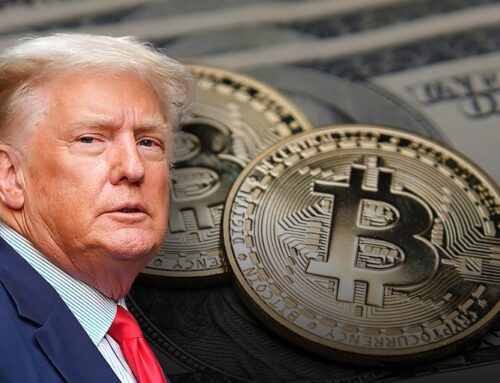Trump’s second term will test Europe’s clean energy resilience
November 13, 2024
Donald Trump’s return to the White House following November’s election result sent a jolt through global markets, but its implications are especially complex for Europe.
While major US stock indices, including the Dow Jones, S&P 500, and Nasdaq, surged in the wake of Trump’s win, clean energy stocks have dropped sharply — a reaction that underscores the tension between Trump’s pro-fossil fuel policies and Europe’s ambitious climate agenda.
The financial sector rallied on the promise of Trump’s deregulation and tax cuts, and investors in the US appear confident about renewed growth prospects. Yet, for European providers of green energy finance, Trump’s re-election signals potential obstacles and raises questions about how aligned the transatlantic approach to climate action can remain in this new political landscape.
European concerns about US policy direction
The enthusiasm in US financial markets reflects investor confidence in lower taxes, deregulation, and reduced oversight — policies that Trump promoted throughout his first term. Banks and financial institutions in particular, buoyed by the prospects of fewer restrictions, saw sharp gains. European financial institutions, however, face a different set of pressures. While some may benefit indirectly from renewed M&A activity in the US, European regulators and investors are increasingly prioritising environmental, social, and governance (ESG) standards, an area that Trump’s administration has actively opposed. This divergence between US and European financial priorities could create complexities for European banks operating across both markets.
For clean energy, Trump’s pro-fossil fuel policies are equally troubling for European stakeholders. Many European clean energy providers rely on the US as a significant investment destination for renewable projects. The Inflation Reduction Act, which has funnelled billions into the US clean energy sector, remains in place for now. However, Trump’s intentions to limit or repeal subsidies for renewables threaten to destabilise the renewable sector’s growth trajectory. European providers and investors may have to recalibrate their US strategies if support for renewable energy wanes.
Potential headwinds for global climate goals
From a European perspective, the challenges under a Trump administration extend beyond immediate market reactions. Trump’s strong stance against international climate accords, including the Paris Agreement, signals a possible US retreat from coordinated climate action. This anticipated shift could destabilise global climate progress, forcing European policymakers and green finance providers to fill an even larger leadership gap. Wood Mackenzie estimates that US emissions could rise by a billion tonnes under Trump’s fossil-fuel-driven policies, a projection that threatens to reverse the gains achieved by international climate agreements. For European providers of green energy finance, these shifts in US policy introduce new risks, as market momentum for renewables in the US may stall, and global climate commitments may weaken without strong US involvement.
Access the most comprehensive Company Profiles
on the market, powered by GlobalData. Save hours of research. Gain competitive edge.

Company Profile – free
sample
Thank you!
Your download email will arrive shortly
We are confident about the
unique
quality of our Company Profiles. However, we want you to make the most
beneficial
decision for your business, so we offer a free sample that you can download by
submitting the below form
By GlobalData
<!–
–>
Visit our Privacy Policy for more information about our services, how we may use, process and share your personal data, including information of your rights in respect of your personal data and how you can unsubscribe from future marketing communications. Our services are intended for corporate subscribers and you warrant that the email address submitted is your corporate email address.
European clean energy companies and investors could also see a drop in American demand for sustainable financing if US climate policies retreat. This could push Europe to seek climate collaboration in other regions while reinforcing its own regulatory standards to ensure that investors and businesses align with its ambitious Green Deal goals. The potential for regulatory and market divergence between the US and Europe raises the spectre of uneven playing fields in the global clean energy transition.
Resilience in clean energy investment
Yet, there is room for cautious optimism among European stakeholders. Several factors may mitigate Trump’s impact on the global energy transition. For one, state-led and private sector initiatives within the US remain supportive of clean energy growth. Many US states, including California and New York, continue to prioritise renewable projects, presenting ongoing opportunities for European investors in those regions. Furthermore, the Inflation Reduction Act’s subsidies, although threatened, still hold bipartisan support, including in Republican-held constituencies, which could limit the extent of Trump’s policy reversals. These dynamics could preserve some of the cross-border market for European clean energy providers who are invested in US projects.
European energy providers also recognise that the market for renewable energy is driven by cost advantages and demand from large corporations seeking stable, low-cost, and sustainable power sources. Globally, the International Energy Agency projects that renewable energy capacity will nearly double by 2030, driven by growing demand in sectors like data centres, electric mobility, and industrial production. European energy investors are well-positioned to leverage these trends, which could offset the potential dampening effects of US policy changes.
Transatlantic co-operation or divergence?
As Trump’s administration begins shaping its climate and energy policies, Europe faces a critical question: Will it continue to find common ground with the US on sustainable finance and climate action, or will it chart a more independent path, bolstering alliances with regions that share its commitment to a green transition? A more isolationist stance in US climate policy could shift Europe’s investment focus toward emerging markets in Asia, Africa, and Latin America, where demand for renewable energy solutions remains robust.
Moreover, European regulators, committed to ESG standards, may become less tolerant of any backsliding on corporate sustainability practices from American companies operating within the EU. With the implementation of the Corporate Sustainability Reporting Directive, European regulators may push companies to adopt stricter reporting standards, a move that could lead to a widening regulatory gulf with the US.
A critical juncture for European green finance
For Europe, Trump’s return to the White House has cast uncertainty over the future of transatlantic co-operation on climate and clean energy. While some opportunities remain, the challenges are real. European green finance providers will need to stay agile, potentially looking beyond the US to markets with stronger regulatory alignment. At the same time, they may increasingly press for global standards that uphold Europe’s climate priorities. In the coming years, the world will watch to see if Europe can lead an energy transition even when its long-standing partner, the US, charts a different course.
Search
RECENT PRESS RELEASES
Related Post




